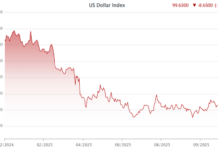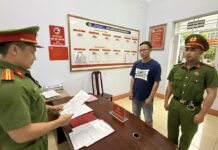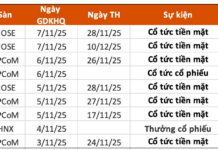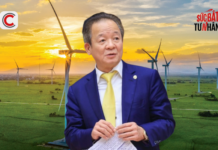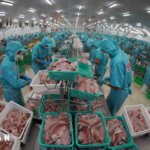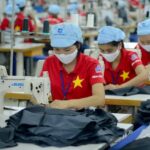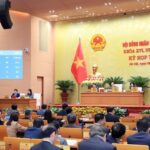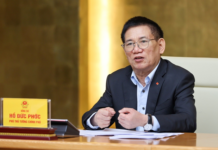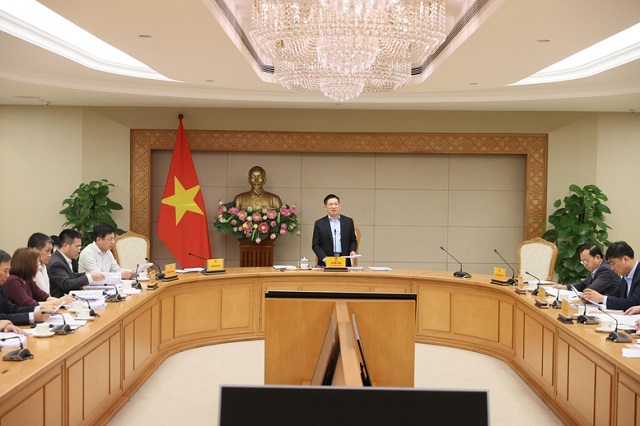
|
Deputy Prime Minister Ho Duc Phoc chairs the meeting on the plan to supplement VEC’s charter capital. Photo: VGP/Tran Manh
|
At the meeting, VEC’s leadership reported on the VND 5,334.36 billion worth of bonds that the Ministry of Finance paid on VEC’s behalf (issued for two projects: the construction of the Cau Gie-Ninh Binh Expressway and the Noi Bai-Lao Cai Expressway); financial plans to complete the Ben Luc-Long Thanh Expressway; and the investment in the expansion project of the Ho Chi Minh City-Long Thanh section (under the Ho Chi Minh City-Long Thanh-Dau Giay Expressway project).
Regarding the debt owed to the Ministry of Finance, VEC proposed freezing and postponing the repayment to ensure operational cash flow and not disrupt the financial plan, as well as to create conditions to arrange resources for investing in new projects.
On the proposal to increase charter capital, VEC’s representative said that it would be beneficial for the Corporation. Due to VEC’s unique model, an increase in charter capital would unlock resources for state-owned enterprises and state capital invested in the enterprise.
“Assuming the charter capital is raised to VND 40 trillion, VEC can mobilize (according to regulations) up to three times that amount, or VND 120 trillion. This would not only allow for the expansion of the Ho Chi Minh City-Long Thanh line but also for the expansion of many other routes as directed by the Government,” said the VEC representative.
After hearing the opinions of representatives from various ministries and sectors, Deputy Prime Minister Ho Duc Phoc clarified that the extension of VND 5,499 billion for investment in the expansion project of the Ho Chi Minh City-Long Thanh section exceeded the Government’s ability. The accumulated fund for debt repayment to VEC is still low, and an extension would require the approval of the National Assembly. The Deputy Prime Minister requested VEC to settle this amount.
To accurately determine the principal and interest, the Deputy Prime Minister assigned the Ministry of Finance to be responsible for re-evaluating VEC’s debt repayment proposal.
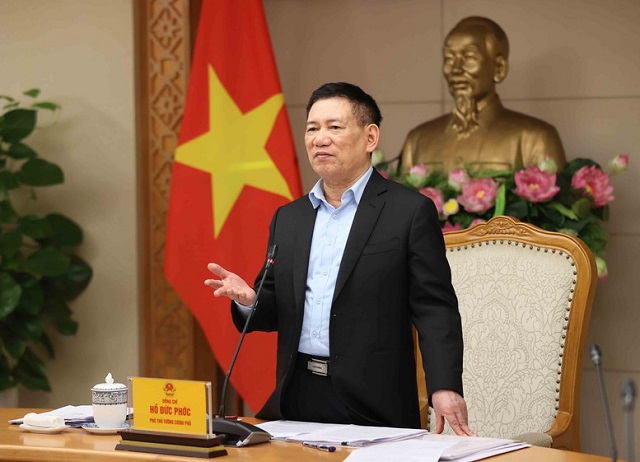
|
Deputy Prime Minister Ho Duc Phoc concludes the meeting. Photo: VGP/Tran Manh
|
Regarding the increase in charter capital, the Deputy Prime Minister said that there are five projects with allocated capital, four of which have been decided by the Prime Minister to be allocated capital (in 2022, the National Assembly passed a resolution to convert VND 24,127 billion from ODA loans to allocated capital). However, there are no regulations on converting allocated capital into invested charter capital.
Analyzing the amount of VND 38,251 billion that the State Capital Management Committee proposed to invest in supplementing VEC’s charter capital until the end of 2026, the Deputy Prime Minister stated that the principle of budget expenditure must have a budget estimate. This amount exceeds the total investment of VND 30 trillion according to the Law on Public Investment, and there are currently no regulations on converting allocated money into charter capital. Therefore, the supplement of capital to VEC must be submitted to the National Assembly for its opinion.
Informing that the Government leaders intended to allow VEC to implement the expansion project of the Ho Chi Minh City-Long Thanh Expressway with a total investment of over VND 16 trillion, Deputy Prime Minister Ho Duc Phoc suggested that VEC should propose to re-borrow from the Government bond issuance.
With this approach, instead of requesting an extension, VEC can use this source to repay the previous loan, and the Government will submit it to the National Assembly for approval of re-lending, without applying the provisions of the Law on Public Debt Management, which will be very convenient.
The Deputy Prime Minister assigned VEC to re-establish the dossier, propose to continue debt repayment, increase charter capital, and borrow from the Government bond issuance to invest in the Ho Chi Minh City-Long Thanh Expressway project. The State Capital Management Committee is responsible for appraisal and submission to the Government.
The Deputy Prime Minister requested the Ministry of Finance and other ministries and sectors to provide opinions in accordance with regulations. After being approved by the Government at a meeting, the Ministry of Finance, on behalf of the Government, will submit it to the National Assembly. This must be completed by December 2024.
The Vietnamese Economy’s Robust Growth “Remains on Track”
According to Professor Hal Hill, Vietnam will soon become a “high-income economy” – something that would have been unimaginable in the late 20th century.
The Evolution of Vietnam’s Textile Industry: Navigating Challenges and Opportunities
The textile industry witnessed a remarkable recovery in 2024, paving the way for a confident and ambitious future. This resurgence lays the foundation for the sector to continue its strategic development, with a vision to thrive and excel in 2025 and beyond, marking a new era of prosperity and progress.
“The Hanoi Target: Aiming for 6.5% Growth by 2025”
On December 10th, the Hanoi People’s Council, at its 20th session, passed a resolution on the city’s socio-economic development plan for 2025. The resolution sets an ambitious target of achieving a 6.5% growth rate in the regional gross domestic product (GRDP) while aiming for a per capita GRDP of 172.4 million VND.






